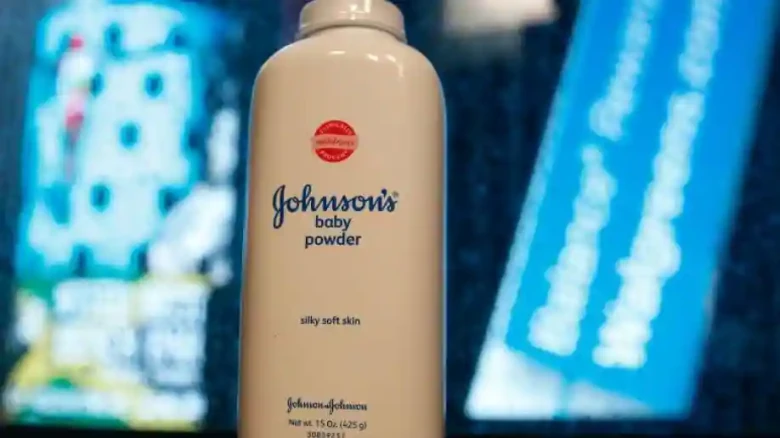Regional
His legacy reminds us of the importance of self-reliance, courage,...

Less than 1% of the company's shares increased in post-market trade, and as of Thursday's close, they had lost 2.3% of their value this year.
Digital Desk: It has been years since
the business withdrew the talc-based baby powder in the US and Canada, but
Johnson & Johnson announced that it intends to stop selling its legacy
talc-based baby powder products globally in 2023. This announcement comes amid
ongoing legal disputes.
Following an evaluation
of its portfolio, J&J announced on Thursday that it has "commercially
decided" to switch all of its baby powder products to cornstarch from
talcum powder. Since roughly ten years ago, the health conglomerate has been
the target of lawsuits alleging it concealed cancer risks associated with its
talc-based baby powder. The company claims the product is safe.
color:#2E2E2E">According to spokesperson Melissa Witt, "We regularly
assess and improve our portfolio to best position the business for long-term
success." "Today's decision is a result of an evaluation of our
global portfolio that looked at a number of variables, including regional
variations in the demand for our products and shifting consumer trends and
tastes."
Less than 1% of the
company's shares increased in post-market trade, and as of Thursday's close,
they had lost 2.3% of their value this year.
color:#2E2E2E">In May 2020, J&J withdrew its talc-based powders from the US
and Canadian markets, citing yet another "commercial decision" based
on dwindling sales as it negotiated thousands of lawsuits alleging the
substance had caused some users to get cancer.
In a statement sent via
email on Thursday, Leigh O'Dell, an attorney for former talc users, claimed that
J&J had "finally done the right thing" after decades of marketing
talc-based goods that the corporation knew might harm innocent women and men
around the world by spreading lethal malignancies. "More than two years
ago, they stopped making sales in North America. It is unacceptable that this
action has been delayed."
Talcum Powder
Because
the mineral keeps skin dry and reduces diaper rash, talcum powder has been a
staple in infant products for a long time. However, the mines that create the
powder can also produce asbestos, a material that was historically utilised in
goods like building insulation and has been linked by experts to cancer.
Consumer product firms have discovered that maize starch can provide talc's
advantages without the asbestos concern.
According to J&J,
"our position on the safety of our cosmetic talc remains unaltered,"
as of Thursday.
color:#2E2E2E">The health company has been looking for strategies to limit its
legal responsibilities for years. According to a business filing with the U.S.
Securities and Exchange Commission made last month, it is facing 40,300
lawsuits in the US for its talc-based powders.
Last year, J&J
claimed it was having difficulty controlling the claims and sought bankruptcy
protection for its recently formed LTL Management LLC arm.
.
$2 Billion Trust
For
the purpose of resolving all present and future talc claims, the corporation
placed $2 billion into a trust as part of the bankruptcy of the subsidiary. A
judge declared in February that the case may move forward in order to pursue
settlements, but his decision is currently being contested.
Former talc users'
attorneys have contested J&J's decision to have the unit file for Chapter
11 protection in order to deal with the talc unit. On September 19, a federal
appeals court in Philadelphia will examine the plaintiffs' assertions that the
action constituted to a "bad faith" bankruptcy filing because they
maintain that the talc litigation didn't pose a threat to J&J's financial
standing.
color:#2E2E2E">In court filings, as per J&J's attorneys, the corporation
encountered difficulties in negotiating a broad settlement of the talc claims
and had to deal with rising legal expenses. The drugmaker's counsel pointed out
that over the past five years, it has spent more than $1 billion on legal fees
related to the talc cases and has had to contend with conflicting jury
decisions.
Leave A Comment